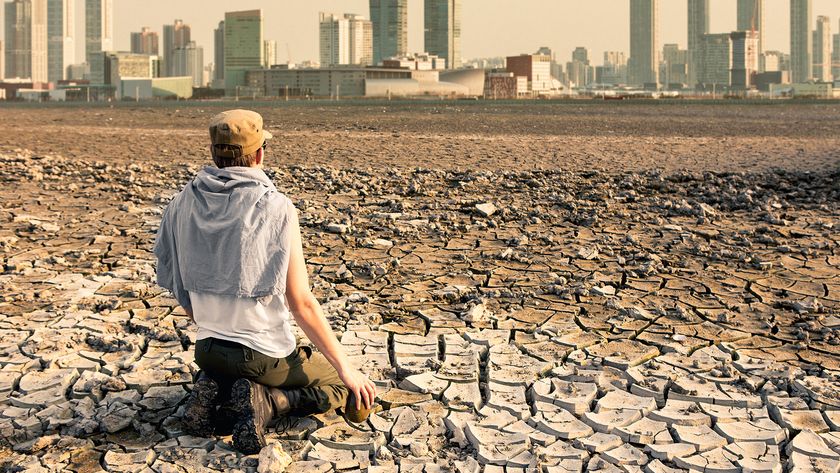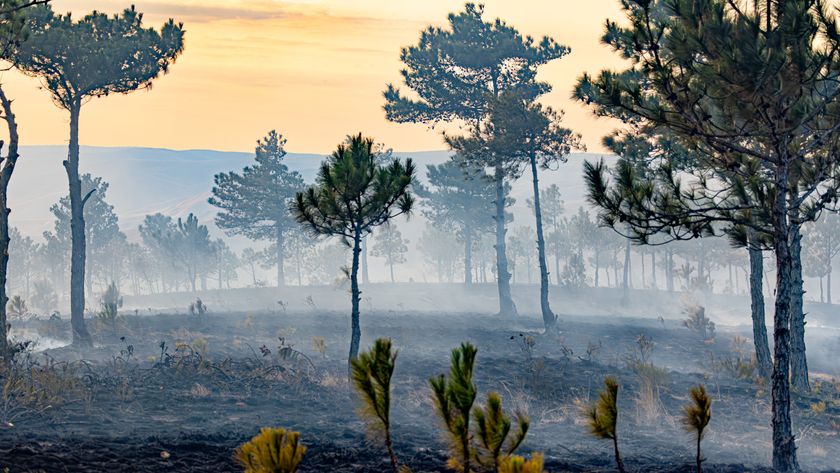Hotter Years Ahead for US, Report Finds

This week, federal climate scientists made it official: 2012 smashed the record for the hottest year in the United States. And now researchers warn that Americans can expect to see increasingly warm years ahead due to the effects of climate change.
The U.S. Global Change Research Program released its draft National Climate Assessment Friday (Jan. 11), revealing the current understanding of climate-change science, how climate change is impacting Americans and what the country's climate might look like in the decades to come.
A warming planet, the report finds, is already affecting Americans' livelihoods and health, something that will intensify in the future.
"This could help restart a national conversation about climate change," Todd Sanford, a climate scientist with the science-policy nonprofit Union of Concerned Scientists (UCS), said in a statement. "It gives us a road map for climate change. And the road is much bumpier if we continue along a higher emissions pathway."
About 240 individuals contributed to the report and included scientists and individuals from local, state and federal government, the private sector and nonprofit organizations.
The resulting draft notes that the average temperature in the United States has increased by about 1.5 degree Fahrenheit since 1895, with more than 80 percent of that change occurring since 1980. The next few decades are projected to see another 2 to 4 degrees F of warming in most areas of the country, the draft says, while the amount of warming by the end of the century is projected to reach up to 5 to 10 degrees F if global emissions of greenhouse gases continue to increase at their current pace.
In this warmer future, people and livestock will have little respite from the heat, because nighttime temperatures will remain high, the draft says. And in other places, droughts will contribute to conditions that are driving larger and more frequent wildfires.
Sign up for the Live Science daily newsletter now
Get the world’s most fascinating discoveries delivered straight to your inbox.
The report also warns that climate change is a public health concern as well.
"Climate change is increasing the risks of heat stress, respiratory stress from poor air quality, and the spread of waterborne diseases," the draft authors write. "Food security is emerging as an issue of concern, both within the U.S. and across the globe, and is affected by climate change."
Hurricane Sandy was an unfortunate reminder that infrastructure in the United States is vulnerable to extreme weather and the report highlights that roads, buildings, ports, and energy facilities are already being damaged by bigger storm surges caused by sea level rise.
Not only are the oceans rising, but also they're getting warmer. Increasing sea temperatures and acidification, combined with overfishing and pollution, could seriously hurt the fishing industry, the report reads.
"Climate change is already affecting us, and there's a growing demand at the local level for information about what it means for our present and our future," Sanford said in a UCS statement. "The climate conversation always starts with science. Because policymakers have generally supported policies that increase emissions, successfully adapting to climate change is becoming more difficult."
The draft, which has been submitted for public comment and will not be finalized for months, draws on scientific peer-reviewed research, including assessments by the United Nations Intergovernmental Panel on Climate Change (IPCC).













